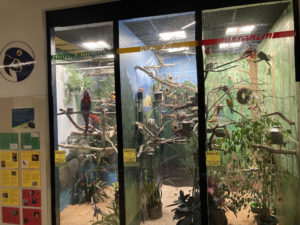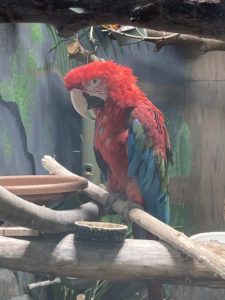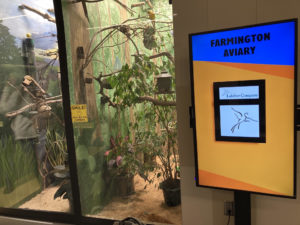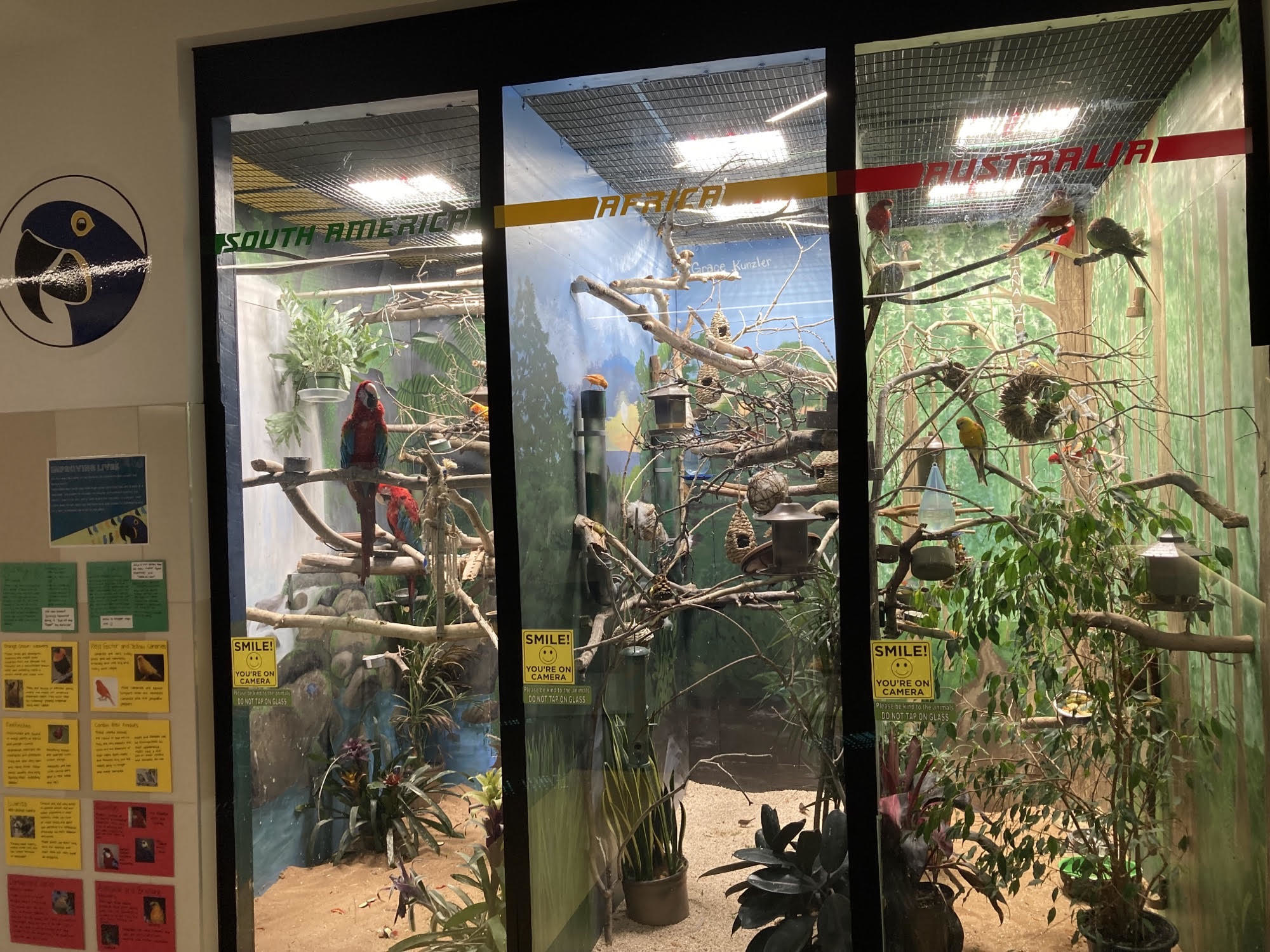
Aviaries are found in many places including zoos, rehoming and rescue centers, and colleges. The purpose of an aviary is to provide as natural an environment as can be attained for the birds housed within them. For rescue and care facilities, aviaries give a comforting world to a neglected, unwanted, or otherwise abused bird that needs to be nursed back to health, physically and emotionally. For colleges, they are housing for studied birds designed for learning experiences. And for zoos, they are the only way to display the birds that reside in them, often for life. Beyond these kitypes ds of places, aviaries are typically unheard of, as they carry a great expense and high level of upkeep. But a High School in Utah has done what has not been done before – build an aviary for the students.
A School for the Birds
Farmington High School Farmington, Utah, is a small town with an approximate population of around 25,000 people. The high school is a relatively new building for Farmington, having been built in 2018. With around 1,500 students and an average cumulative GPA of 3.34, Farmington High has a lot going for it. In what is likely viewed as a rarity in option, the school offered a starting course in ornithology due to increasing national interest in birds. The program, initiated by science chair, Adam Blundell, has gained in popularity since its inception. As the program consistently matures, students are now lined up to get into the class. In fact, Mr. Blundell states, “I have students who absolutely love working with birds. They love this field, and they love my class. They want to be here and be a part of this, and in fact, they just won’t leave. They’re just here all of the time.”
The curriculum for the ornithology classes dives into the study of bird care as well as developing working habits in maintaining a functional aviary. Such in-depth teaching can only have a positive influence on students. The popularity of the courses has allowed it to expand into advanced courses that help students interested in careers in avian care and more advanced studies.
Building Spaces to Learn About Birds

Last year, the birds used in the classroom needed a better place to stay and so the idea of an aviary became the subject that was advanced. Promptly approved, the aviary was built and now houses the birds that represent multiple areas of study in the ornithology classes. A pair of green-winged macaws help represent the South America study, red-crested turaco and a variety of finches represent the Africa exhibit, and Grasskeets and Eastern Rosellas represent the Australia study. Other divisions include Raptor, Horticulture and Botany, Animal Enrichment, and of course, the design of the exhibits. Mr. Blundell remains as the aviary curator. A fourth exhibit featuring the Rainforest is being planned, with the hope to acquire Toucans and installing misting fixtures. A funding program is half funded for this ambitious project.
The aviary partitions are built in the center of the school with a glass front that allows for students to view the birds from the hallways. The students are assigned aviary care projects and happily attend to them. Some students have helped to build the aviary.

The birds selected for the studies and that are housed in the aviary are rescue birds. They were unable to be returned to the wild. The care they receive in the school’s aviary is special. They are properly fed, provided freshwater, and well-looked after. Owls and falcons are planned for future exhibits but are dependent on future funding. Lafeber has been active in the school program by supplying lower-cost overrun bulk food for the birds’ diets, a fact that helps the birds and the burgeoning aviary program immensely.
The beauty of a high school aviary and ornithology classes in a high school setting is that both helps to contribute to the awareness of our prized birds of the wild. Bringing this awareness to younger than collegiate-age students with hands-on experience can only deliver future thinkers into the field of advanced studies of all birds. We celebrate the offering of bird awareness programs for all ages. The news of a ‘first of its kind’ high school aviary hopefully will jumpstart a trend in such projects for other high schools.
Watch a video on this unique Farmington HS aviary here.
